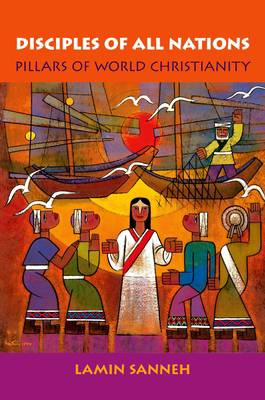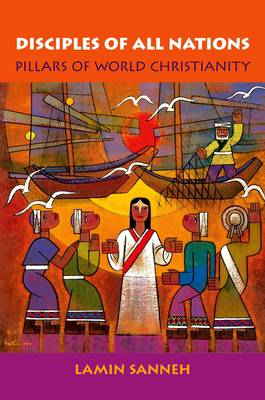
- Afhalen na 1 uur in een winkel met voorraad
- Gratis thuislevering in België vanaf € 30
- Ruim aanbod met 7 miljoen producten
- Afhalen na 1 uur in een winkel met voorraad
- Gratis thuislevering in België vanaf € 30
- Ruim aanbod met 7 miljoen producten
Zoeken
Omschrijving
Long the dominant religion of the West, Christianity is now rapidly becoming the principal faith in much of the postcolonial world--a development that marks a momentous shift in the religion's very center of gravity. In this eye-opening book, Lamin Sanneh examines the roots of this "post-Western awakening" and the unparalleled richness and diversity, as well as the tension and conflict, it has brought to World Christianity. Tracing Christianity's rise from its birth on the edge of the Roman empire--when it proclaimed itself to be a religion for the entire world, not just for one people, one time, and one place--to its key role in Europe's maritime and colonial expansion, Sanneh sheds new light on the ways in which post-Western societies in Africa, Asia, and Latin America were drawn into the Christian orbit. Ultimately, he shows, these societies outgrew Christianity's colonial forms and restructured it through their own languages and idioms--a process that often occurred outside, and sometimes against, the lines of denominational control. The effect of such changes, Sanneh contends, has been profound, transforming not only worship, prayer, and the interpretation of Scripture, but also art, aesthetics, and music associated with the church. In exploring this story of Christianity's global expansion and its current resurgence in the non-Western world, Sanneh pays close attention to such issues as the faith's encounters with Islam and indigenous religions, as well as with secular ideologies such as Marxism and nationalism. He also considers the challenges that conservative, non-Western forms of Christianity pose to Western liberal values and Enlightenment ideas. Here then is a groundbreaking study of Christianity's role in cultural innovation and historical change--and must reading for all who are concerned with the present and future of the faith.
Specificaties
Betrokkenen
- Auteur(s):
- Uitgeverij:
Inhoud
- Aantal bladzijden:
- 384
- Taal:
- Engels
- Reeks:
Eigenschappen
- Productcode (EAN):
- 9780195189612
- Verschijningsdatum:
- 30/11/2007
- Uitvoering:
- Paperback
- Formaat:
- Trade paperback (VS)
- Afmetingen:
- 155 mm x 233 mm
- Gewicht:
- 539 g

Alleen bij Standaard Boekhandel
+ 125 punten op je klantenkaart van Standaard Boekhandel
Beoordelingen
We publiceren alleen reviews die voldoen aan de voorwaarden voor reviews. Bekijk onze voorwaarden voor reviews.











